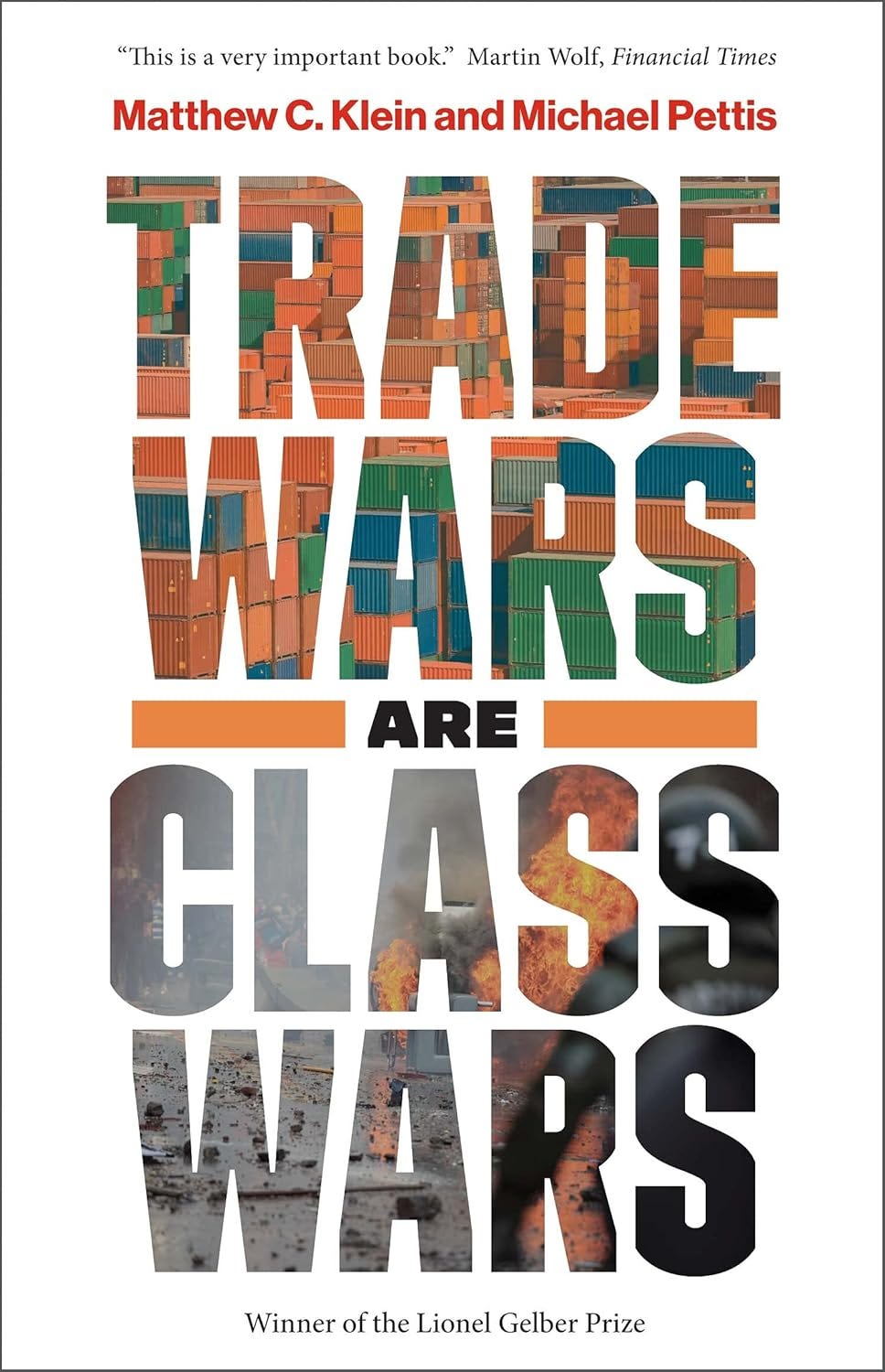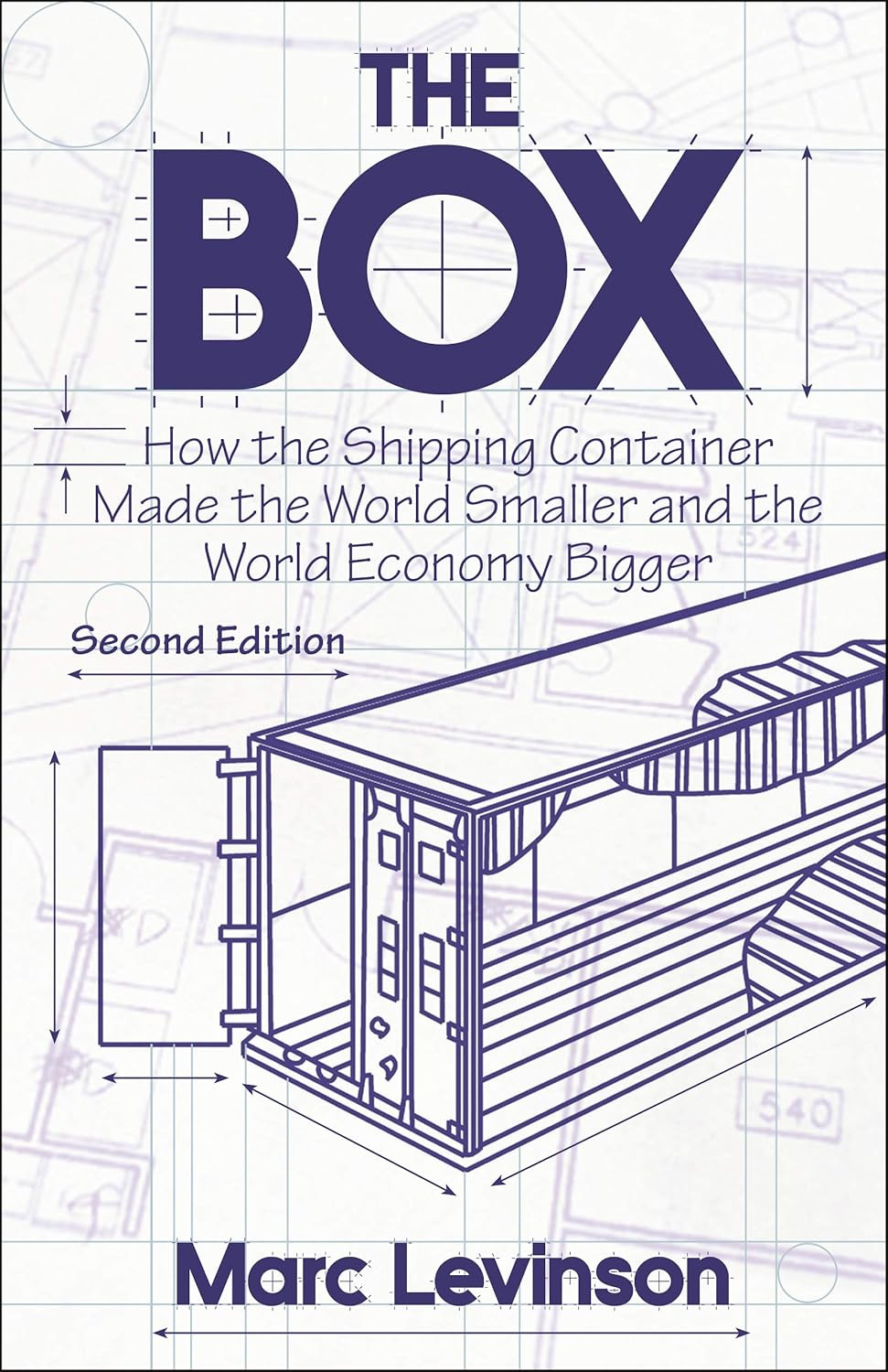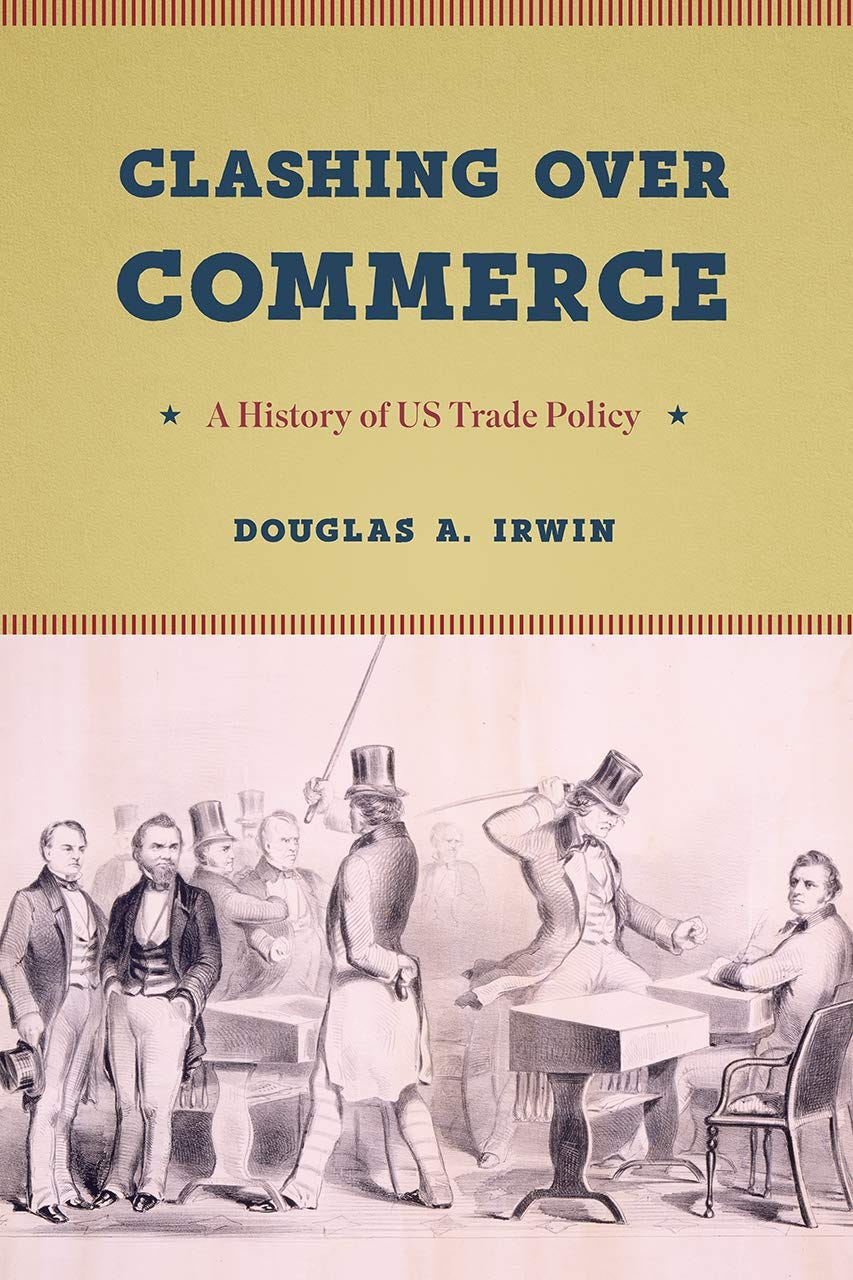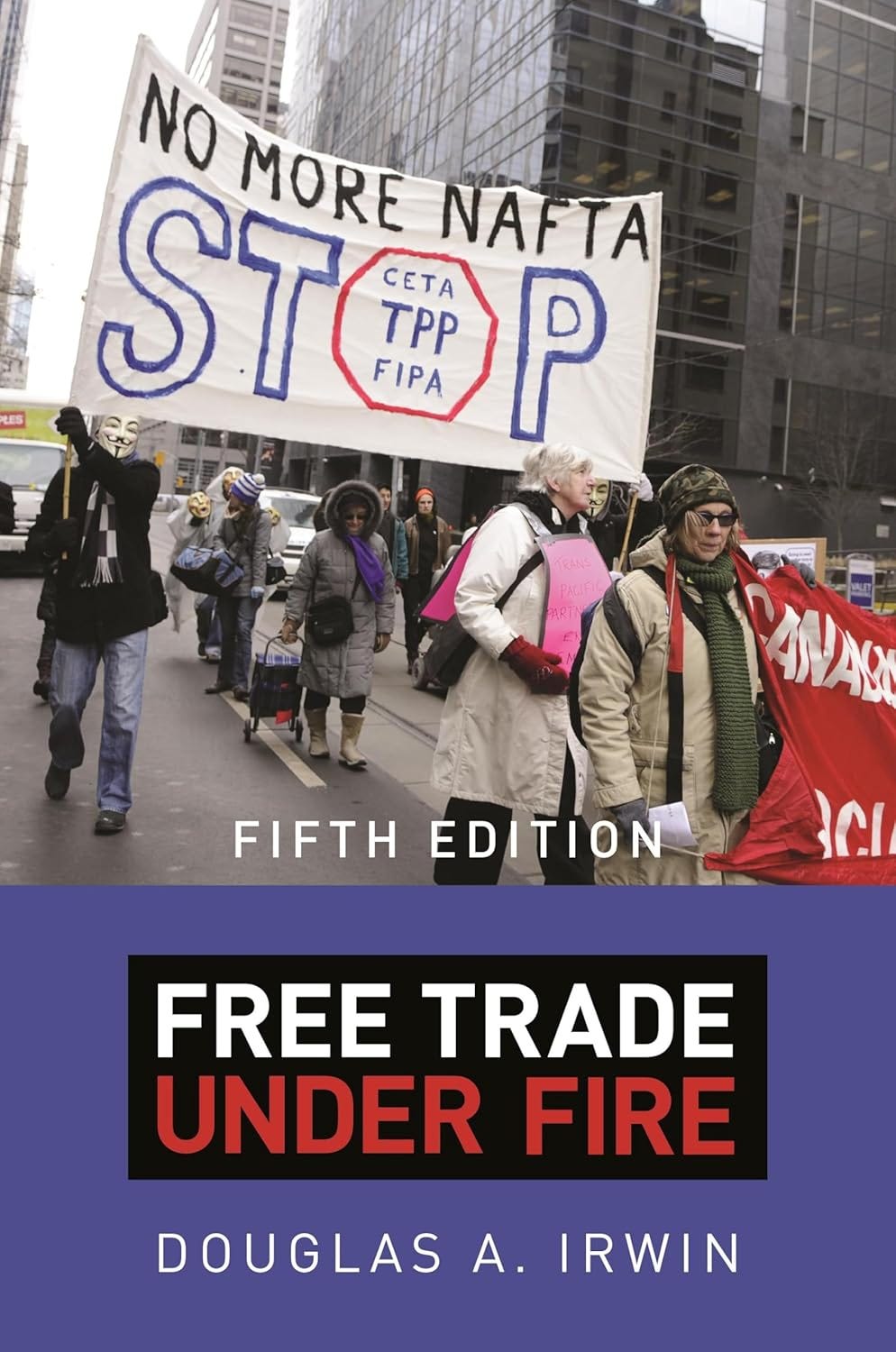Behind Trumps Trade War: Eight books to understand trade wars and tariffs
Discover eight essential books that provide insights into trade wars and tariffs, exploring their historical context and modern implications.
With rising discussions about potential trade policy changes and tariff implementations, these eight books provide essential insights into international trade relations, protectionist policies, and their impact on global commerce. From historical perspectives to modern economic analysis, these reads are particularly relevant for understanding the implications of evolving trade policies.
1. Trade Is Not a Four Letter Word
by Fred P. Hochberg
What is Trade Is Not a Four Letter Word about ?
Trade Is Not a Four Letter Word" by Fred P. Hochberg explores the often misunderstood and controversial topic of international trade. Through engaging stories and examples, Hochberg demystifies how trade works and highlights its positive impact on everyday life, from the products we use to the jobs it creates. The book aims to challenge common misconceptions, offering a fresh and optimistic perspective on why trade is essential for economic growth and global cooperation.
Who should read Trade Is Not a Four Letter Word ?
Individuals interested in understanding the complexities of international trade in an accessible way.
Professionals and students looking to challenge common misconceptions about global commerce.
Anyone curious about how trade impacts their daily lives and contributes to global economic growth.
2. No Trade Is Free: Changing Course, Taking on China, and Helping America's Workers
by Robert Lighthizer
What is this book about ?
"No Trade Is Free: Changing Course, Taking on China, and Helping America's Workers" by Robert Lighthizer examines the complexities and challenges of modern trade policies. Drawing from his experience as a U.S. Trade Representative, Lighthizer delves into the economic and political impacts of globalization, focusing on U.S.-China trade relations. The book emphasizes the importance of reshaping trade policies to protect domestic industries and support American workers, offering insights into how nations can balance free trade with economic fairness and national interests.
Who should read this book ?
Policymakers and economists interested in understanding the challenges of modern trade and protecting domestic industries.
Business leaders and professionals navigating the complexities of global trade with a focus on U.S.-China relations.
Readers seeking insights into balancing free trade with supporting American workers and industries.
3. Trade Wars Are Class Wars: How Rising Inequality Distorts the Global Economy and Threatens
By Matthew C Klein
What is it about ?
"Trade Wars Are Class Wars: How Rising Inequality Distorts the Global Economy and Threatens" by Matthew C. Klein delves into the interconnected relationship between economic inequality and global trade imbalances. The book argues that rising inequality within major economies has profound effects on international trade, financial stability, and political tensions. By examining the actions of both wealthy elites and struggling workers, Klein sheds light on how class dynamics shape trade policies and economic outcomes, ultimately threatening global prosperity.
Who should read this book?
Economists and policymakers interested in the relationship between economic inequality and global trade imbalances.
Readers seeking to understand how social and economic class dynamics influence global financial stability.
Individuals curious about the broader impacts of inequality on international trade and political tensions.
4. Choice, The: A Fable of Free Trade and Protection
by Russell Roberts
What is it about ?
"The Choice: A Fable of Free Trade and Protection" by Russell Roberts uses a fictional narrative to explore the principles and debates surrounding free trade and protectionism. Through a compelling and accessible story, the book illustrates the economic and ethical implications of trade policies, shedding light on how they affect businesses, workers, and consumers. By blending storytelling with economic insights, Roberts provides a thought-provoking perspective on the benefits and challenges of free trade.
Who should read this book?
Readers interested in understanding the principles and debates surrounding free trade and protectionism through an engaging narrative.
Economics students and professionals seeking a simplified yet insightful perspective on trade policies.
Anyone curious about the ethical and economic implications of global trade on businesses, workers, and consumers.
5. The Box: How the Shipping Container Made the World Smaller and the World Economy Bigger
by Marc Levinson
What is it about ?
"The Box: How the Shipping Container Made the World Smaller and the World Economy Bigger" by Marc Levinson explores the transformative impact of the shipping container on global trade and the modern economy. Through compelling storytelling, the book details how this simple yet revolutionary invention drastically reduced shipping costs, streamlined logistics, and reshaped industries around the world. Levinson highlights how the container played a key role in globalization, changing the way goods are produced and consumed, and fostering economic growth on an unprecedented scale.
Who should read this book?
Historians and economists interested in the transformative impact of innovation on global trade and supply chains.
Business professionals and logistics enthusiasts curious about the evolution of shipping and its influence on globalization.
Readers seeking to understand how a simple invention revolutionized industries and reshaped the modern economy.
6. Clashing Over Commerce: A History of US Trade Policy
by Douglas A. Irwin
What is it about ?
"Clashing Over Commerce: A History of US Trade Policy" by Douglas A. Irwin provides a comprehensive look at the evolution of trade policy in the United States, from the founding of the nation to the present day. The book examines the political, economic, and social factors that have shaped U.S. trade policy decisions over time, highlighting key debates and turning points. Irwin explores how trade policy has influenced economic growth, domestic industries, and international relations, offering readers a deeper understanding of the complexities of commerce and its role in shaping the nation's history.
Who should read this book?
Readers interested in understanding the history and evolution of U.S. trade policy and its impact on the economy.
Economists and policymakers seeking insights into the political, economic, and social factors shaping trade decisions.
Students and professionals looking for a comprehensive analysis of key debates and turning points in U.S. trade history.
7. Free Trade under Fire
by Douglas A. Irwin
What is it about ?
"Free Trade under Fire" by Douglas A. Irwin examines the controversies and debates surrounding free trade in the modern economy. The book provides a detailed analysis of how free trade impacts economic growth, employment, and income distribution, while addressing the criticisms it faces from various political and social perspectives. Irwin combines historical context with contemporary examples to explore the benefits and challenges of free trade, offering a balanced and evidence-based perspective on its role in shaping global commerce and economic policy.
Who should read this book?
Economists and policymakers interested in understanding the impact of free trade on economic growth and employment.
Readers seeking a balanced perspective on the debates and controversies surrounding free trade policies.
Students and professionals looking to deepen their knowledge of income distribution and trade-related challenges in the modern economy.
8. The Travels of a T-Shirt in the Global Economy
by Pietra Rivoli
What is it about ?
"The Travels of a T-Shirt in the Global Economy" by Pietra Rivoli tells the fascinating story of a simple cotton T-shirt as it travels across the globe, illustrating the complexities of international trade. The book delves into the economic, political, and social forces that shape global commerce, from cotton fields in Texas to textile factories in China and secondhand markets in Africa. Rivoli uses this accessible narrative to explore key issues such as labor practices, environmental concerns, and the impact of trade policies, making the book an engaging and informative journey through the global economy.
Who should read this book ?
Readers interested in understanding the global journey of everyday products and the complexities of international trade.
Individuals curious about labor practices, environmental impacts, and trade policy debates.
Students and professionals looking for an engaging narrative that connects economics to real-world stories.
I hope you enjoyed this week's Read & Rise by thinkabled. Stay tuned for the latest book list, wisdoms, and more!
See you next week!
Did someone share this email? Get your own free subscription at Cerebrate.













